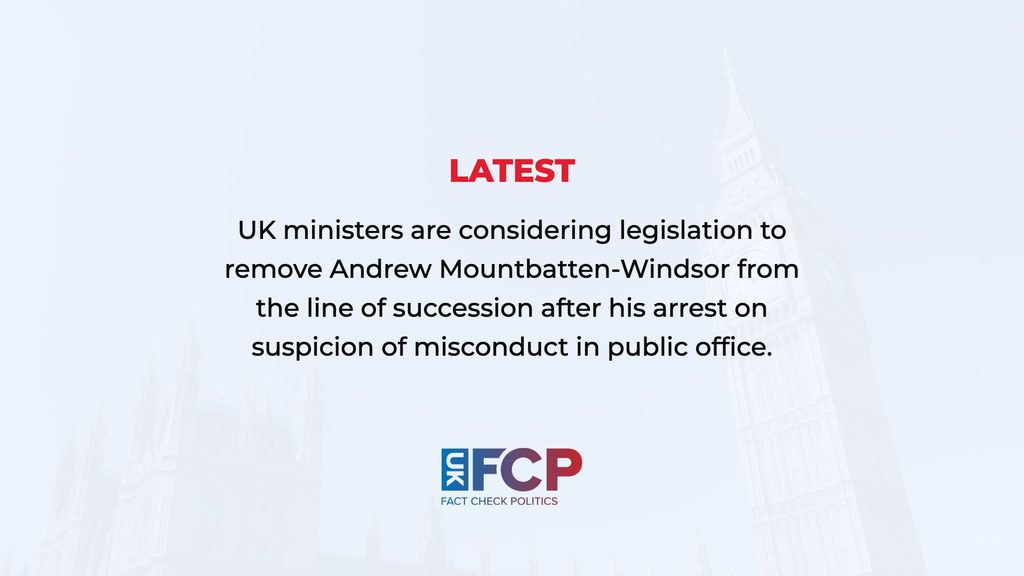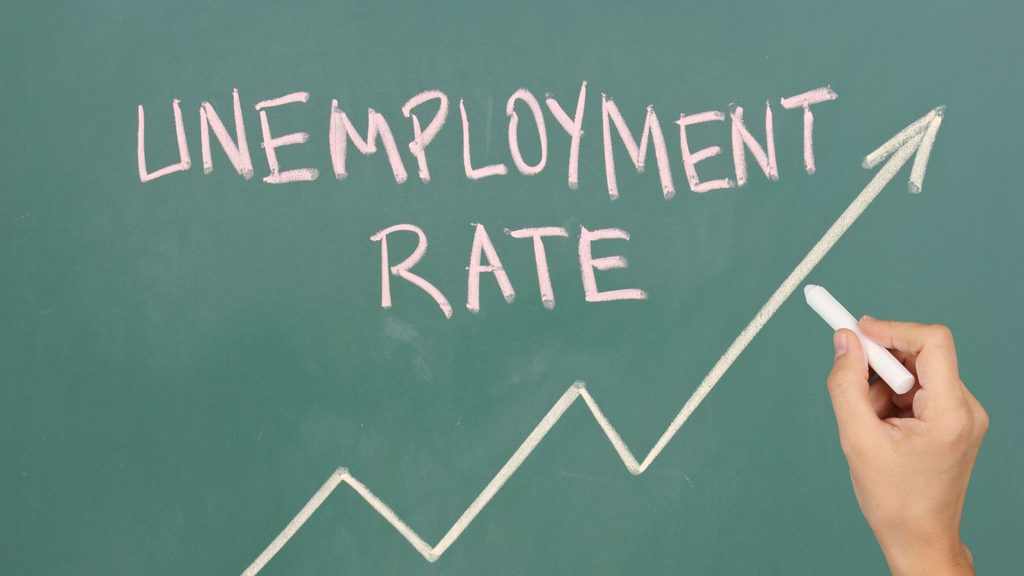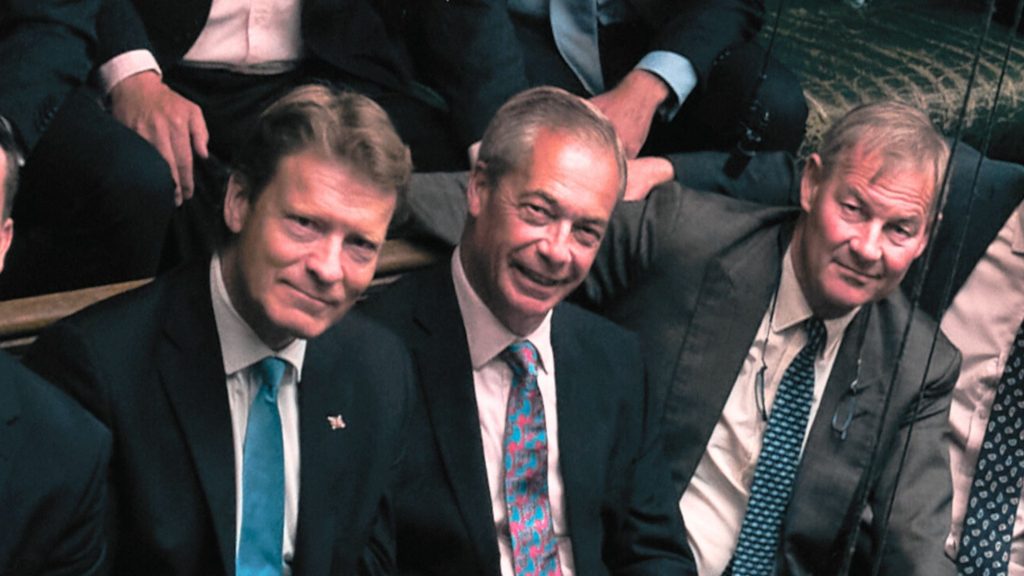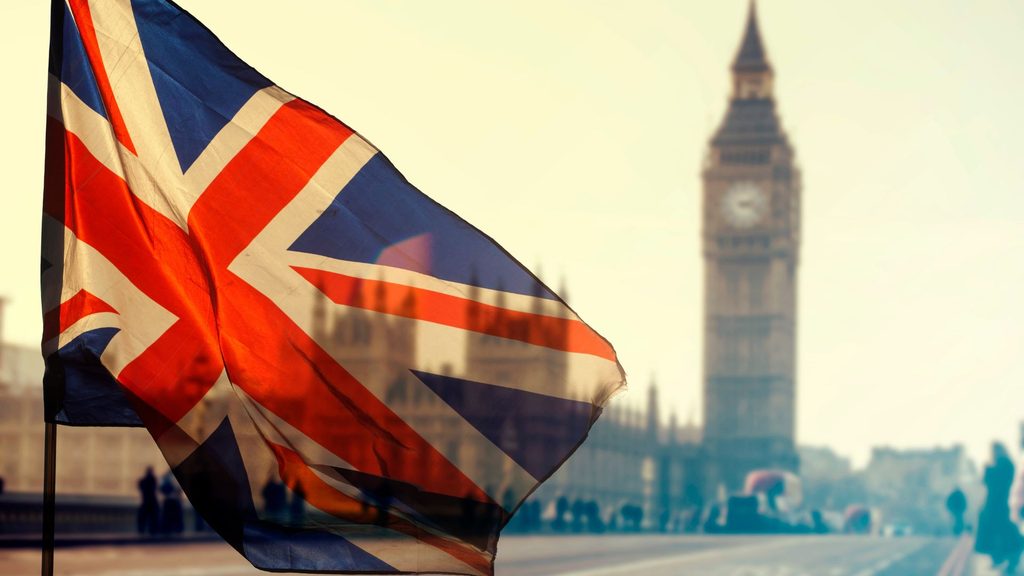Shabana Mahmood was visibly angry by the time she rose to reply to the Liberal Democrats. Accused of using “immoderate” language that “stokes division”, the home secretary did something rare in the Commons: she made the debate explicitly personal.
“I wish I had the privilege of walking around this country and not seeing the division that the issue of migration and the asylum system is creating,” she told MPs. She went on to say she is “regularly” called a racial slur – which she repeated on the floor of the House – and is often told to “go back home”, despite being the British-born daughter of legal migrants.
It was an unscripted moment in a long, brutal session that laid bare the pressures of an almost impossible job. In the space of a single day, Mahmood was praised by Conservatives for “fresh energy”, courted and condemned by Nigel Farage, lauded by some commentators as a future Labour leader, and denounced by MPs on her own benches and opposition parties as presiding over “dystopian” or “cruel” policies.
Yet amid the sound and fury over deportations, small boats and the European Court of Human Rights, a quieter part of her package risked being overshadowed. Ministers are preparing what some in government are describing as “the biggest change to the immigration system in modern times”: a new system of capped safe routes for work and study, and an expanded community sponsorship scheme designed to give local people a greater say over who they welcome.
These safe and legal pathways are intended to sit alongside the tougher measures on illegal migration as the “positive” half of Mahmood’s asylum strategy. The idea is simple enough: make it harder to stay in Britain if you arrive illegally, but more structured – and tightly controlled – to come here if you are “genuinely fleeing war and persecution” and are willing to follow the rules.
One new route will allow refugees and displaced people to come to the UK to study. It is aimed at students whose education has been disrupted by conflict or persecution, giving “talented” individuals a way to resume their studies at British institutions rather than risking dangerous journeys or languishing in camps.
A second route will be opened for skilled refugees and displaced people to take up work in the UK, building on the existing Displaced Talent Mobility Pilot. That scheme has tested ways of matching people with recognised skills to job opportunities, with ministers now keen to scale it up under a capped, formal programme.
Alongside these, the government plans to expand and reshape refugee sponsorship so that voluntary and community organisations play a bigger role in bringing named individuals to the UK. All three pathways – work, study and sponsorship – will be capped annually, with an overall ceiling on numbers set by central government. Ministers say the aim is to restore public confidence by showing that Britain offers protection through rules and planning, not chaos and queues of small boats on the south coast.
The Home Office believes expanding this sponsorship model will give local areas a stronger say in who they welcome and how support is organised. Sponsors – which could be faith groups, charities, universities, employers or community networks – would be expected to help arrivals find their feet, become self-sufficient and contribute economically and socially to their new communities. English language learning will be central, with refugees helped to reach a “high standard” so they can integrate and work more quickly. Officials argue that stronger language support is essential both for social cohesion and for reducing long-term welfare costs.
Privately, ministers see this as a logical evolution of the “Homes for Ukraine” scheme, under which hundreds of thousands of Ukrainians were offered places in British homes after Russia’s invasion. Under the new plans, arrangements similar to Homes for Ukraine could, in principle, be opened to people fleeing other conflicts, with individuals and community groups able to offer accommodation and support through a structured route rather than ad hoc crisis schemes.
All of this, however, sits within a broader package that is unmistakably designed to harden the UK’s asylum regime. The key document, Restoring Order and Control, sets out two overarching goals: to reduce illegal arrivals, especially via small boats, and to increase removals of those with no right to remain. Mahmood argues that the current system “feels out of control and unfair” and that unless it is fixed, anger over immigration will be exploited by extremists and could ultimately fuel hatred.
In the Commons, she framed the situation starkly. Some of those arriving illegally are genuine refugees, she said, but “others are economic migrants seeking to use and abuse our asylum system”. She told MPs that 400,000 people had claimed asylum in the UK over the last four years, more than 100,000 now live in asylum accommodation, and more than half of recognised refugees remain on benefits eight years after arrival. While asylum claims across much of Europe have fallen, she said, they have risen here, in part because Britain’s offer is more generous than many of its neighbours.
Later, in an interview with Sky News, she acknowledged that the number of people crossing the Channel in small boats has “gone up” under Labour and is “too high”. Around 49,000 people are estimated to have arrived in the year to June 2025, a rise of roughly 27% on the previous year. Mahmood described herself as “horrified” by the figures and “impatient” to bring them down. She also admitted that the government does not know precisely how many people are in the UK illegally, although the Home Office believes around 40,000 failed asylum seekers remain in the country.
The most far-reaching change in her plan concerns the very nature of refugee status. At present, most successful asylum seekers receive five years’ leave to remain and can then apply for permanent settlement, a pathway that effectively allows them to make the UK their home for life. The policy paper argues that this has come to mean that being granted refugee status is “to essentially receive the ability to live in this country, forever” – and that this now needs to change.
Under the reforms, initial protection will last 30 months, not five years, and refugee status will be reviewed every two and a half years. The route to settlement will be lengthened from five to twenty years. If, at any review point, a person’s home country is deemed safe enough, the UK will seek to remove them rather than allow them to stay indefinitely. Mahmood argues that in a “more volatile and mobile” world, it is no longer sustainable automatically to convert refugee recognition into a right to settle permanently.
For some Labour MPs, that is a step too far. Stella Creasy said she had “grave concerns”, particularly about the impact on children born or raised here. She pointed to Syrian families in her constituency whose children are settled in local schools and are, in most respects, British in outlook. Leaving families in a state of permanent uncertainty, she argued, would make it harder for them to work, plan and integrate, ultimately undermining the very social cohesion ministers say they want to protect. She also questioned how constant reviews would work for people persecuted for reasons that do not change over time, such as sexual orientation or a history of torture.
Mahmood insists the new rules will apply to future arrivals, not those already here, and that decisions will be guided by up-to-date country information. She presents the change less as punishment than as realism: the world changes, regimes fall, and a system designed for rare, high-intensity refugee flows now has to cope with large, protracted movements of people.
Another controversial pillar of the package is the treatment of families and children. The government’s own document acknowledges that the UK has been reluctant to remove families with children, fearing the moral and political consequences of forced deportations. It argues that this “hesitancy” has created “perverse incentives”, encouraging some people to bring children on dangerous journeys in the belief that their presence will make removal less likely.
The new policy is explicit: all families whose asylum claims fail will be offered financial support to return voluntarily to their country of origin. If they refuse, the government will “escalate to an enforced return”. Financial support will no longer continue automatically until the youngest child turns 18; instead, support will be linked to cooperation with removal. Children, officials stress, will not be separated from parents during deportation, but the inevitable consequence is that more children will be removed from the UK alongside their families.
Critics on the Labour benches warned that this risked treating children as leverage. Creasy said she was “particularly worried” about plans to increase deportations of children whose parents had previously been accepted as refugees, only to have their status revoked years later. Nadia Whittome described the Denmark-style model briefed over the weekend as “dystopian” and “shameful”, accusing the government of “ripping up the rights and protections of people who have endured unimaginable trauma”. Mahmood responded that the system as it stands is “broken” and is itself fuelling division, insisting she has a “moral duty” to fix it.
Financial support more generally is being tightened. At present, the state has a legal duty to provide basic support to asylum seekers who would otherwise be destitute. Under the reforms, that duty will be removed for some categories, particularly those who have — or are given — permission to work but refuse to do so. Mahmood’s argument is that the public will not tolerate a system in which people who can support themselves rely indefinitely on taxpayer-funded accommodation and subsistence.
But it was the suggestion that valuables could be seized from wealthier asylum seekers that caused the greatest uproar. Wilkinson, for the Liberal Democrats, said he could not see how it made sense to threaten loss of support for people who are banned from working in most cases, and questioned the fairness of taking personal belongings. Owen asked what evidence there was that confiscating “personal belongings, such as jewellery” would deter dangerous journeys.
Mahmood pushed back hard, accusing critics of “conflating” issues. She said the target was people who arrive with significant assets – “those who have access to money and who can afford quite expensive cars” – who, she argued, should contribute to the cost of their own accommodation if they choose to claim asylum. “We will not and never will seize people’s jewellery at the border,” she told MPs. “We’re not going after sentimental items like wedding rings and so on.” Downing Street later reinforced the point, saying officials would not be “taking sentimental pieces” but that substantial amounts of gold or other high-value assets would not be treated simply as keepsakes.
Alongside the domestic reforms, Mahmood is preparing to push harder on removals abroad. The policy paper says the government is “exploring resuming enforced returns” to countries where removals have largely ceased in recent years, specifically naming Syria. It notes that some voluntary returns have already taken place since the fall of Bashar al-Assad and the emergence of a transitional government headed by Ahmed al-Sharaa, and argues that if a regime has changed, it should in principle be possible to return those who fled it. Ministers insist they will not send people back to face harm, but human rights groups are likely to challenge any attempt to restart forced returns to countries still marked by instability and repression.
The UK has recently signed a new returns agreement with Iraq and wants to expand the list of countries willing to accept people who cannot be sent directly to their home state. A long-discussed idea of “return hubs” – facilities in partner countries where failed asylum seekers could be processed or resettled – remains on the table, with negotiations reportedly under way with governments in the Western Balkans and elsewhere, though none has yet agreed to host such a hub.
To increase leverage over reluctant states, the government plans to use visa penalties more aggressively. Under existing law, the UK can suspend or restrict entry clearance for nationals of countries that refuse to cooperate with the return of their citizens. The new policy makes clear that such penalties, including suspending the granting of visas entirely, could be used where necessary.
Inside the system, there is also a push to speed up decisions and appeals. With more than 51,000 asylum cases unresolved as of March, Mahmood wants to avoid people remaining in limbo for years. The reforms propose a new appeals body staffed by “professionally trained adjudicators”, and a fast-track process for cases deemed to have a “low likelihood of success”, so that those “simply abusing the system to slow down their inevitable removal” can be dealt with more quickly.
The Law Society has voiced alarm, warning that the “right to a fair hearing is not optional” and should not be sacrificed for speed. Its president, Mark Evans, urged ministers to focus on getting decisions right first time and to ensure that reforms respect both domestic law and international treaties, including the European Convention on Human Rights, which he described as providing protections “for us all”.
The ECHR sits at the heart of the political battle around Mahmood’s plan. While Labour has pledged to remain within the convention, the Conservatives and Reform UK argue that meaningful control over borders is impossible without leaving it. Kemi Badenoch, the Conservative leader, told MPs that “any plan that doesn’t include leaving the ECHR as a necessary step is wasting time” and “doomed to fail because of lawfare”. She said her party would seek to deport everyone who arrives illegally, ban them from claiming asylum in the UK, and remove them within a week where possible.
At the same time, Badenoch was careful to offer Mahmood qualified praise, saying she had “got more done in 70 days” than her Tory predecessor and acknowledging that immigration levels are “not fair on British citizens”. She called the reforms “baby steps in the right direction” but “nowhere near enough”, promising “supportive opposition” on measures such as making refugee status temporary and ending the automatic duty to support asylum seekers, while criticising the decision to retain a path, however long, to permanent residency.
Mahmood responded by accusing the Conservatives of “giving up on governing” and wasting “precious years and £700m” on the Rwanda plan, which returned no asylum seekers and only a handful of volunteers. She said she would not take lessons from a party whose flagship policy, in her words, had been “an expensive gimmick… doomed to failure from the start”.
Further to the right, Reform UK claimed vindication. Farage said Mahmood “sounds like she’s auditioning to join Reform”, welcoming her acknowledgement that uncontrolled migration can fuel anger, but warning that her proposals would not work while the UK remains in the ECHR. He said he was “undecided” whether his party’s MPs would support the reforms, citing doubts about whether tougher language would be matched by results. He argued that illegal migration was “tearing the country apart” because people can see it is “simply not fair”, but cautioned against “talking down the Brits”, whom he described as “a pretty good bunch”.
Mahmood’s response to Reform and the far right was unambiguous. She told Sky News that Farage could “sod off” and that she was “not interested in anything he’s got to say”. Asked about praise from Tommy Robinson, she said it was “incredibly offensive” to be quoted by “a man who doesn’t even think I belong in my own country”, adding that “he can sod off, too”. In the Commons, she pleaded with MPs not to keep invoking Robinson’s name. “I find that very offensive,” she said. “We don’t need to do that, and we do not need to go there.”
Elsewhere, the reaction was more complex. The Green Party accused the government of trying to “out-Reform Reform” and pushing “toxic, racist narratives” that scapegoat migrants for problems rooted in political decisions and “grotesque inequality”. Jeremy Corbyn said Labour was “introducing draconian measures against refugees” in an attempt to appease “ghastly, right-wing forces all across Europe” and warned that history would judge the party harshly if it undermined international human rights norms.
From Ireland, justice minister Jim O’Callaghan said his government would “closely monitor” the UK’s changes and consider adjusting its own asylum policies to avoid becoming more attractive than Britain to those seeking protection. He plans to bring forward a new International Protection Bill later this year and has already ordered a review of Ireland’s rules on family reunification, with a view to aligning more closely with the UK where appropriate.
Through it all, Mahmood sought to frame her actions as an attempt to hold the country together rather than to win a culture war. Asked how critical it was for Labour to “fix” migration to win the next general election, she said: “Nothing matters more to me than holding my own country together, not even winning a general election.” Her decisions, she insisted, are guided by her duty as home secretary to “fix this broken system and unite our country”.
Whether voters, campaigners and her own colleagues will accept that framing remains to be seen. On this evidence, Mahmood is willing to absorb personal attacks, accusations of betrayal and praise from uncomfortable quarters to push through what she believes is a necessary reset. It was, by any measure, one of her toughest days yet in Westminster – a day on which she swore in the Commons, spoke openly about the racism she faces, and set herself at the centre of perhaps the most divisive issue in British politics, all while trying to persuade the country that firmness and fairness can still go hand in hand.







Comments
No comments yet. Be the first to comment!